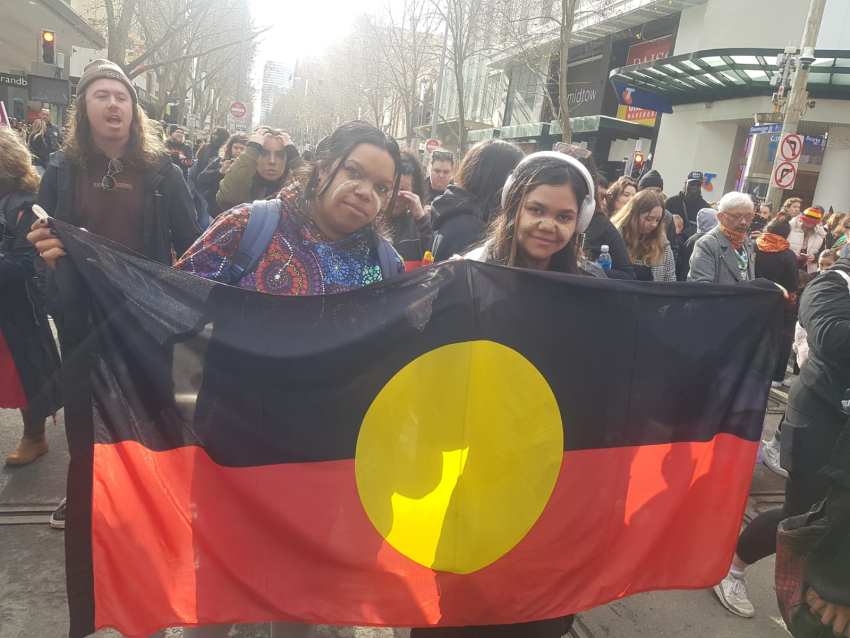
The week Prime Minister Anthony Albanese told the Garma Festival that Labor was “more determined than ever” to close the gap, three First Nations people died in custody.
The latest Closing the Gap Annual Data Compilation Report confirmed that not only is not enough being done, things have gotten worse for First Nations people.
Incarceration rates, suicide rates, the number of children in out-of-home care and child development are all deteriorating, it found.
Other goals, such as life expectancy, youth engagement and housing, are improving but are not on track to reach the Closing the Gap targets.
The report includes shocking, but sadly unsurprising, statistics.
First Nations people took their own lives at a rate of 30 for every 100,000 people in 2022: this is up from 27 for every 100,000 the year before and is significantly higher than suicide rates in the general population (12 for every 100,000).
Suicide was the leading cause of death for First Nations people aged 15–39, and those aged 35–44 had the highest rate of death by suicide (52 for each 100,000).
The report said racism is on the rise, with the proportion of people experiencing racial prejudice rising from 43% in 2018 to 60% in 2022.
Life expectancy is a shocking 10 years less for First Nations people compared with the general population. It, too, has been found to be failing targets.
Incarceration rates have grown from 2151 to 2266 for every 100,000 people — more than 10 times higher than the general population.
Youth incarceration rates rose slightly from 28 to 30 for every 10,000 people, and First Nations children still make up more than half of all young people in prison.
More than 5% of First Nations children are in out-of-home care, a rise from 56.8 to 57.2 for each 1000. This is an all-time high.
Only 6% of all children are First Nations, yet they make up almost half of all children in out-of-home care — further proof that the stolen generations have not ended.
The report states that targets for First Nations people’s control of land and water rights is “on track”. But what does this mean when Labor governments ignore First Nations rejection of fossil fuel projects on Country?
Albanese told the Garma Festival the gap can be closed and that Labor would work with First Nations communities to “find a new way forward”.
But First Nations leaders say Labor has been silent since last year’s failed Voice to Parliament referendum.
The Albanese government has refused to make critical changes that would make a real difference to the lives of First Nations people. For instance, it has refused to implement the United Nations Declaration on the Rights of Indigenous Peoples, the recommendations of the 1991 Royal Commission Into Aboriginal Deaths in Custody and the 1997 Bringing Them Home Report.
Gunnai, Gunditjmara and Djab Wurrung woman and independent Senator Lidia Thorpe said on August 8 there is a need for urgent national action after three deaths in custody were reported.
A 42-year-old man died in Hakea Prison, Western Australia, on August 2. In Victoria, a 57-year-old died at Port Phillip Prison on August 4. A 35-year-old also died at Fulham Correctional Centre.
Thorpe continues to push for truth-telling and treaty discussions as alternatives to the Voice. She said the PM’s backing away from its commitment to set up a Makarrata Commission to lead truth-telling is another broken promise to First Nations people.
Labor has shown no sign of making funding available for the sort of First Nations-led programs and infrastructure needed to start to seriously tackle this national disgrace.
There is a willingness to do better. The huge numbers of young people at recent NAIDOC week marches and annual Invasion Day marches show a strong appetite for change.
Help Green Left amplify these movements by becoming a supporter or donating to our 2024 Fighting Fund today.